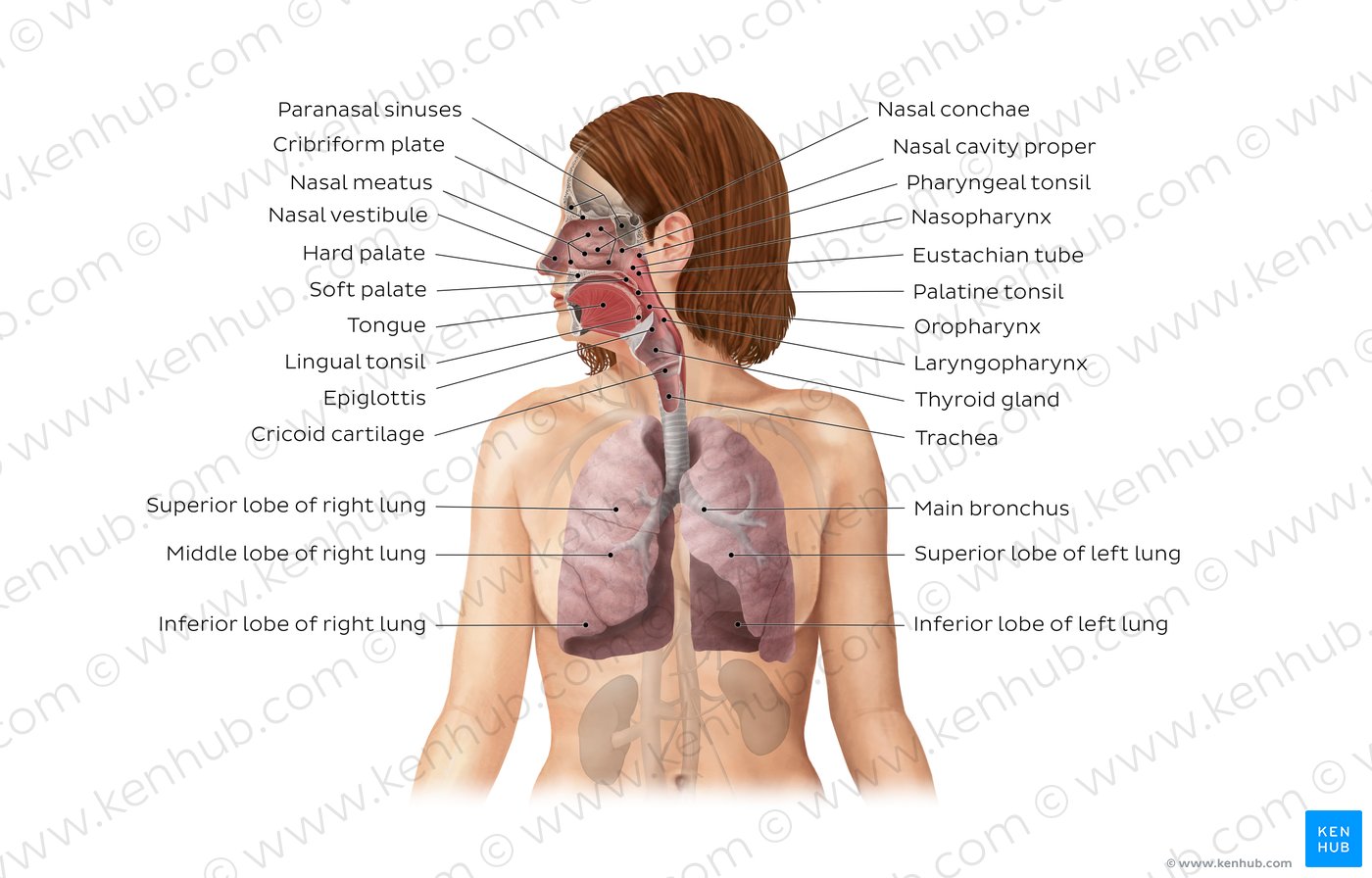Respiratory System
Respiratory System
The respiratory system consists of a series of organs; the nasal cavity, pharynx, larynx, trachea, bronchi, bronchioles and lungs (alveoli). The nasal cavity and pharynx are together called the upper respiratory system, while the remainder of the organs comprise the lower respiratory system.
Respiratory system organs, with the exception of the alveoli, function to conduct air into the lungs aided by the muscles of respiration (mainly the diaphragm and intercostal muscles).
Once air is in the lungs it enters alveoli (the site of gas exchange) and interacts with blood transported by the pulmonary circulation. Here carbon dioxide is removed from, and oxygen returned to, the blood. Thus the major respiratory system function is to bring oxygen into the body and expel carbon dioxide.
